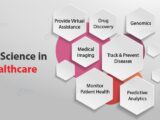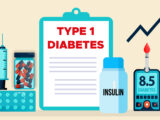
What is Healthcare Analytics?
April 29, 2021What is Healthcare Analytics? Healthcare Analytics is the rapidly growing clinical and financial information analytics disciplines which are undertaken by health care providers to improve quality and ensure cost containment. Healthcare statistics contains a substantial amount of information and care must be taken to analyze, evaluate and interpret it. As this field is wide ranging and complex, it requires a high degree of professionalism to deal with all the queries and statistical analysis involved.
Healthcare Analytics covers four main areas of analytics: demographic analysis, provider and system optimization, health information exchange and reimbursement, and medical claims processing and billing. In this article we will cover the first three topics in detail. We shall also deal with real-time analytics, data mining techniques, and healthcare cost management.
One important challenge for large and small healthcare organizations is how to deal with the huge volume of data that is being generated daily. Traditional approaches have not been able to deal with this critical challenge. Healthcare organizations are now leveraging big data and cloud computing to streamline and leverage the massive amount of information to derive quick and meaningful insights. Healthcare organizations across the globe are leveraging cloud services such as Apache Spark and Hadoop to leverage the power of the web to run applications faster, safer and better. Apache Spark was developed by Yahoo!
Healthcare professionals are now leveraging predictive care software to improve and prevent disease by predicting and preventing diseases before they hit the patient. This way they are able to avert any suffering due to diseases and are able to save the patient’s lives. Healthcare statistics now encompasses preventive care and population forecasting. It has been found that predictive care software is very useful in predicting and preventing diseases, improving healthcare quality by improving patient care and preventing diseases which are becoming common with age such as heart attacks and diabetes. Today, healthcare analytics has become a part of the routine operations of hospitals and other healthcare facilities around the world.
Healthcare analytics to help in analyzing, modeling and communicating important data and insights gathered from the clinical experience and care giving processes. Data and insights provided through healthcare analytics help in improving the quality and productivity of the care giving process. Many of the recent developments in the healthcare industry have resulted in remarkable improvements in the patient’s experience. Advances in the diagnosis and treatment of many diseases and medical conditions have dramatically improved the quality of life of the patients. Healthcare insights have helped in bringing about tremendous improvements in the financial return on health care systems. There are many different applications of healthcare analytics and they include data mining, complex decision analysis, and personalized care management.
Healthcare metrics also form a significant part of analytics strategy. Healthcare metrics are used to gain an understanding of the efficiency of the different healthcare activities of a facility. Metrics help in determining the relationships between the various factors and trends occurring in the environment of a health care organization. Healthcare organizations depend on timely data analysis and knowledge of the current business trends to increase their operational efficiency. Healthcare analytics has opened new horizons for the healthcare industry. It has made it possible to leverage the existing resources for increasing the profitability and productivity of the organization.










